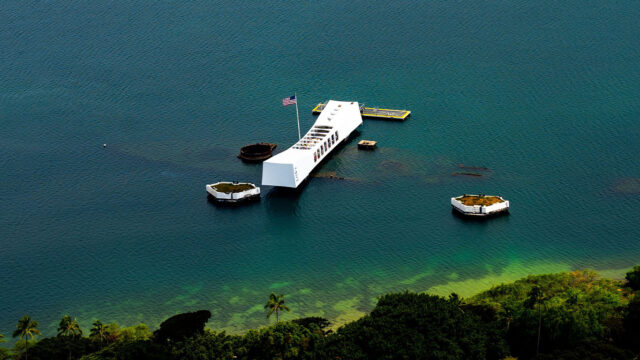The day that then-President Franklin Delano Roosevelt declared would “live in infamy” has been reduced, for many in America’s younger generations, to a vaguely familiar phrase they had to recall for an American History exam.
But it’s important for all of us to remember that day — that moment — that pushed a largely non-committal United States into global conflict, especially as conflicts arise in the present day that threaten to become global.
The Empire of Japan’s surprise attack on the American naval base at Pearl Harbor, Hawaii, lasted just over an hour and marked the beginning of U.S. involvement in the Pacific. It was that attack — along with the threat of alliance between Japan and Nazi Germany — that led Roosevelt to also call for the United States’ official entry into the war already raging in Europe as well.
Several key events foreshadowed the attack in the early morning hours:
- 6:10 a.m. — The USS Condor, a minesweeper, spots a periscope.
- 6:45 a.m. — The USS Ward fires on a Japanese submarine, marking the first shot fired by American forces in World War II.
- 6:53 a.m. — Ward radios Navy HQ, but decoding processes slow down its reception.
- 7:02 a.m. — Radar station on Oahu spots an unidentified aircraft, but reports are ignored because a B-17 from California was expected to arrive.
By 7:40, the first wave of Japanese attack planes were flying over Hawaii — and the coordinated attack began within 15 minutes. By 8:10, the USS Arizona had exploded. The USS Helm, a Destroyer, sank a Japanese submarine at the harbor’s entrance seven minutes later. At 8:54 a.m., 59 minutes after the first wave began, a second wave of Japanese planes arrived and opened fire. At 9:30 a.m., the USS Shaw exploded in dry dock. By 10:00 a.m., the Japanese attack planes had returned to their carriers.
All told, Japan launched the December 7 attack with 353 planes and lost just 29 that day. However, of all the ships involved in the Pearl Harbor attack, only one would still be afloat by the end of the war.
One day later, on December 8, 1941, Roosevelt delivered a joint address to the House and Senate, eventually leading to a declaration of war.
Yesterday, December 7, 1941—a date which will live in infamy—the United States of America was suddenly and deliberately attacked by naval and air forces of the Empire of Japan.
…
No matter how long it may take us to overcome this premeditated invasion, the American people in their righteous might will win through to absolute victory. I believe that I interpret the will of the Congress and of the people when I assert that we will not only defend ourselves to the uttermost but will make it very certain that this form of treachery shall never again endanger us.
Hostilities exist. There is no blinking at the fact that our people, our territory, and our interests are in grave danger.
With confidence in our armed forces—with the unbounding determination of our people—we will gain the inevitable triumph – so help us God.
I ask that the Congress declare that since the unprovoked and dastardly attack by Japan on Sunday, December 7, 1941, a state of war has existed between the United States and the Japanese Empire.
The surprise attack killed 2,403 American service members and injured more than 1,100.






